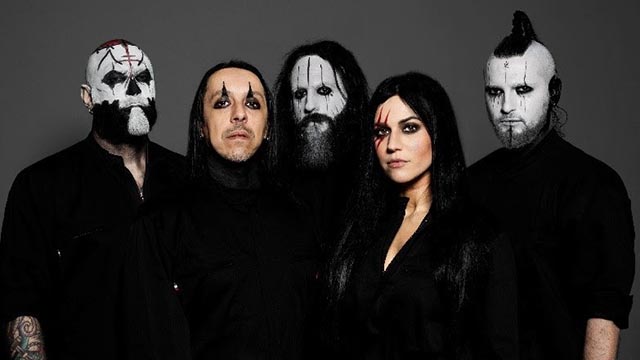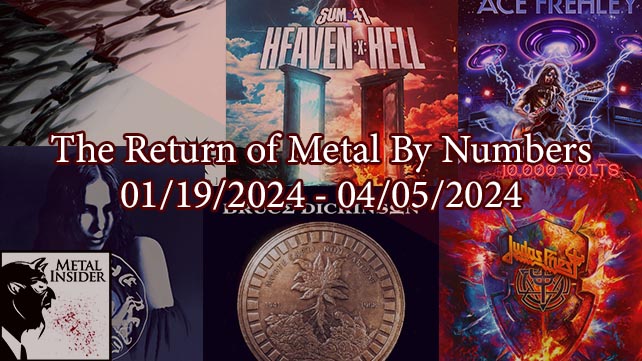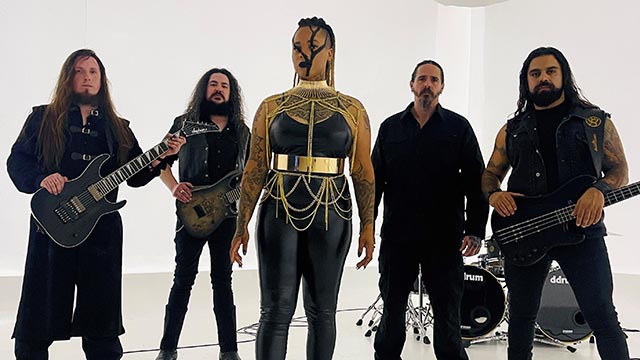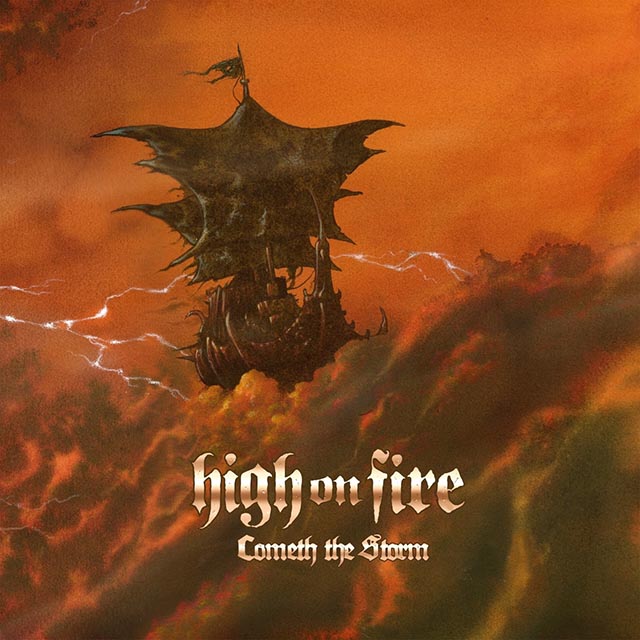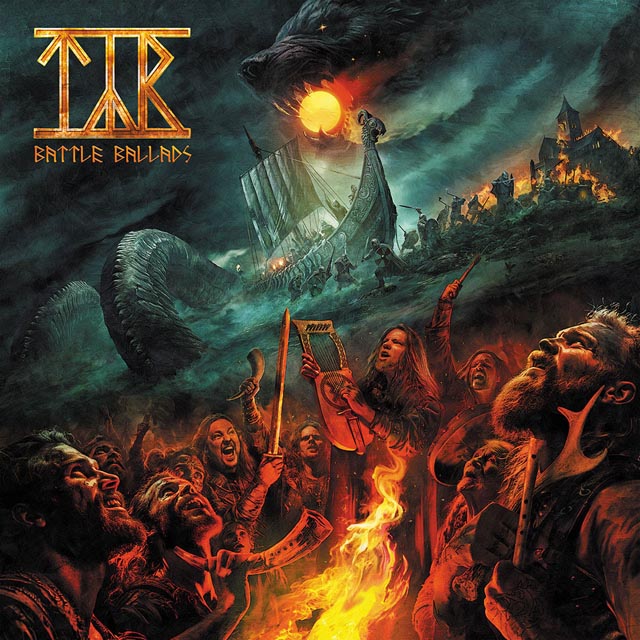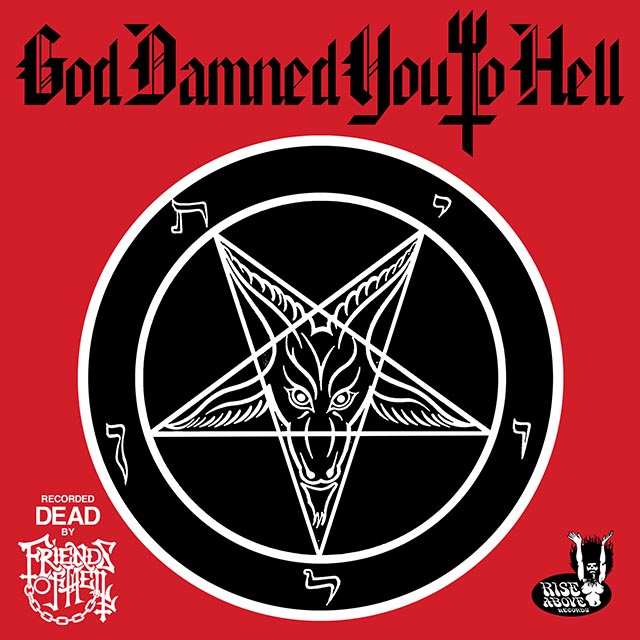
Life of Agony have been through quite a bit throughout their career. Their debut album, 1993’s River Runs Red, was instantly hailed as a classic album, blending hardcore with metal and anchored by the passionate, soulful voice of singer Keith Caputo. Subsequent albums found the band gaining popularity, but Caputo left in 1997, claiming his heart wasn’t in the band. They reunited in 2003, which resulted in another album (2005’s Broken Valley) before another hiatus. There was other change as well, as in 2011, Keith came out as trangender and became Mina Caputo. After playing a handful of shows, the band, which also includes bassist Alan Robert, guitarist Joey Z and drummer Sal Abruscato, signed a deal with Napalm Records and wrote their fifth album, A Place Where There’s No More Pain, which will be released on April 28th. Metal Insider sat down with Caputo and Robert to chat about how Mina’s coming out effected the band, the reasoning behind their hiatuses, and if she considers herself a role model. In addition, we’re giving away a pair of tickets to the band’s May 20th show at Starland Ballroom. Enter below.
A Place Where There’s No More Pain is heavier than I was expecting. Correct me if I’m wrong, but it seems like every album from River Runs Red got a little more commercial until this one. Was that an intentional thing?
Mina: No, I think that’s the natural evolution of us as being eccentric, creative folks. We can’t help but grow.
Alan: We never really set out to repeat ourselves.
Mina: That’s been ingrained in us to never want to write the same record because that’s what makes certain bands and albums special. What would the Pumpkins be without Siamese Dream or My Bloody Valentine’s Loveless or Led Zeppelin’s every album or even Metallica’s Master of Puppets or …And Justice For All?
Alan: They came from the grassroots, Kill ‘Em All or No Life ‘Til Leather sound to Master of Puppets, this really fine-tuned machine. Just the presentation of music. Sonically, they really polished it up.
You’ve had more than one hiatus in your past. What got you back together and what made you decide to have another run at it?
Alan: We have a history of absence. We wear our hearts on our sleeve and when it’s not meant to be, we stop. It took us a long time to recover from Broken Valley and the major label experience. That kind of tortured our souls a bit. Once we were on the path to recovery we started to play some more shows up until 2011 without a new record. Mina came out while we were on tour and that was a shock to me and I think we needed to process. Does this band continue? Does Mina even want to front this band at this point? We kind of had to work out the whole thing on a personal level.
Mina: We had to work out the language that wasn’t being spoken between us. I was very quiet. I lied to my friends my entire life. They knew certain eccentricities from me but they didn’t realize how deep the genderlessness I guess I’ll call it, or the gender fullness has become in my life.
Alan: I personally didn’t know the struggle she was going through. We were very close throughout the whole LOA career but we never really talked about that one issue. We talked about everything else.
Mina: We never really talked about why I was such a miserable guy. I wasn’t really a guy.
Alan: I always saw that, even on stage. I’d look over and see my old friend Keith just in his own world, behind the mic, maybe sometimes not giving it his all. Now I see my friend Mina behind the mic and it’s pure heart and soul every time with every syllable and that’s what I always thought my old friend Keith had the potential to be.
So even then you kind of knew something was missing a little bit?
Alan: Oh I always felt that.
Even from the River Runs Red days?
Alan: Especially back then. You’ve got to remember too, Joey and I are three years older. We did a lot of the writing back then and especially lyrically, I contributed to a lot of those songs. It’s not typical that a bass player would write lyrics and hand them off to the singer to sing. That was the dynamic and it was kind of strange and then she grew into a songwriter over the years.
Mina: Alan was my predecessor, lyrically, musically, especially in this genre of hard rock. I grew up with a classical background. I originally wanted to go to Julliard; I wanted to be a Nina Simone. That’s where my head was at.
Alan: I had no musical training. I picked up a guitar at 17.
Mina: Alan was a graphic artist, that kind of artist, but could make anything work with his hands because that’s what artists do. But yeah, I was too young, naïve, miserable to give a fuck about being in some rock band and fronting some rock band that I had no inhibitions of being in really.
Alan: Joey and I, especially in the beginning, being so gung-ho about the band and my old friend Keith back then was along for the ride in a lot of ways and not being 100%, even though we were experiencing a lot of success especially with River Runs Red and the way it was accepted here and in Europe.
Mina: The bigger we got, the more introverted I became. I felt like I wasn’t sincerely celebrating my soul.
How was the process of coming out to your band? I’m sure it was a struggle.
Alan: I found out online. I was on the side of the stage, ready to go on. My bass was on me.
Mina: I blurted it out because fans were heckling me for months; “Why do you look so feminine?” “You look like a girl more and more every day, what the hell is going on with you?” “You’re disgusting.” “You’ll never be a beautiful woman.” “Get off that shit.” “What are you, gay? What are you, a faggot?” “What are you, this? What are you, that?” It got to a point where I was like, ‘You know what? Everyone go fuck themselves. I am a proud transsexual.’ And as soon as I said that it was like “Kaboom.” Jose Mangin was the first motherfucker online to say “I got your back bitch!” and it kind of escalated from there. That’s how the guys really kind of found out.
Alan: We were about to hit the stage; it was the last show of the tour. That news broke, the promoter shows me his phone, “Should I announce that this is your last show ever?” I said, ‘why?’ and he showed me the metal news site or whatever it was.
Mina: Because as soon as they posted it, it became like headline news across Europe. They were telling my story even before I got to tell my story. They were telling it wrong. They were just making up their own shit as usual.
Alan: But then we played the set, I had that information and we played the set, then we got off stage and me and Mina went to the bus and kind of cried it out a little bit. I was hurt that we were such close friends, in my view, for all these years and we slept literally two bunks away and she never told me that.
Mina: It was hard. I came from the ’70s man. I wasn’t born in no fucking year 3000. The kids of today are so blessed with the information and even the younger, younger, younger, younger kids before they’re 10 years old are already online researching, “Why do I feel like a girl?” “Is this a natural feeling to be feminine and honor the feminine and this and that and it’s not gay.” Yeah, I like men, but it’s way deeper than that. It just feels like all these unanswered questions I have in the Atari years that I grew up. We had Atari and Commodore 64 and ColecoVision; that was our Google.
Mina: I was born in 73 and it’s very different.
Growing up, there was a lot of casual homophobia and casual racism by people that are probably not homophobic or racist, but if all your friends are saying “Faggot” or “Spic” or whatever, you are too and I imagine it’s hard.
Mina: That’s why I had so much self-hate. I grew up with a very racist, homophobic family and instead of celebrating myself, I found disgust and I grew up disgusted with myself because I wasn’t a regular guy, happy as a guy. This something other, alien creature life, I felt like, in an anatomically fit male body.
So you knew from the get-go pretty much?
Mina: Yeah, I was going to elementary school, and my grandma knew too, but “Don’t tell grandpa, he’ll fucking kill us both.” That’s how I was raised. Everything was, “Don’t tell grandpa, he’ll kill you.”
It’s cool you were able to talk to your grandmother about it.
Yeah, she was like, “Don’t worry, you make such a pretty girl, you just have to hide it from grandpa, he’ll kill you.”
Did the fact that it’s become a lot more accepted lately make it easier to come out at all?
Mina: No, I came out actually when the whole transsexual trailblazing thing, you how all these companies and corporations and TV shows and this one and that one, and everyone’s jumping on the transsexual trailblazing kick and it was like I was already out 3, 4 years before the whole Caitlyn Jenner thing and the whole Laura Jane Grace thing and I was actually the catalyst for Laura to come out which she explained in Rolling Stone.
So you two knew each other?
Mina: No, she heard about me which enabled her, I think, seeing me come out in my field of work gave her the power to be like, “Fuck it, I’m with her.” I was inundated by fans mailing me the Rolling Stone article and when I read the articl, Laura mentioned my name and was basically like, I don’t have the exact words but like, “Mina came out and that basically propelled me and gave me some strength to basically do it.”
Have you met or talked with her?
Mina: I’ve toured with her. We did an acoustic tour. We did about three weeks together in the states in 2012/2013. So I’ve known Laura for a bunch of years now and we’re very close acquaintances I would say. She’s very, very busy, a mother. We do occasionally eavesdrop on each other and then we give each other some love and she’ll disappear again for five months because she’s incredibly busy, doing incredible stuff out there.
It seems like most of your fan base has pretty much instantly accepted it all.
Mina: Yeah, that’s kind of been the inspiration to do new music. We had such a positive embrace back in 2014 from everywhere. It made us enthusiastic about this again. It was undeniable, the positivity.


